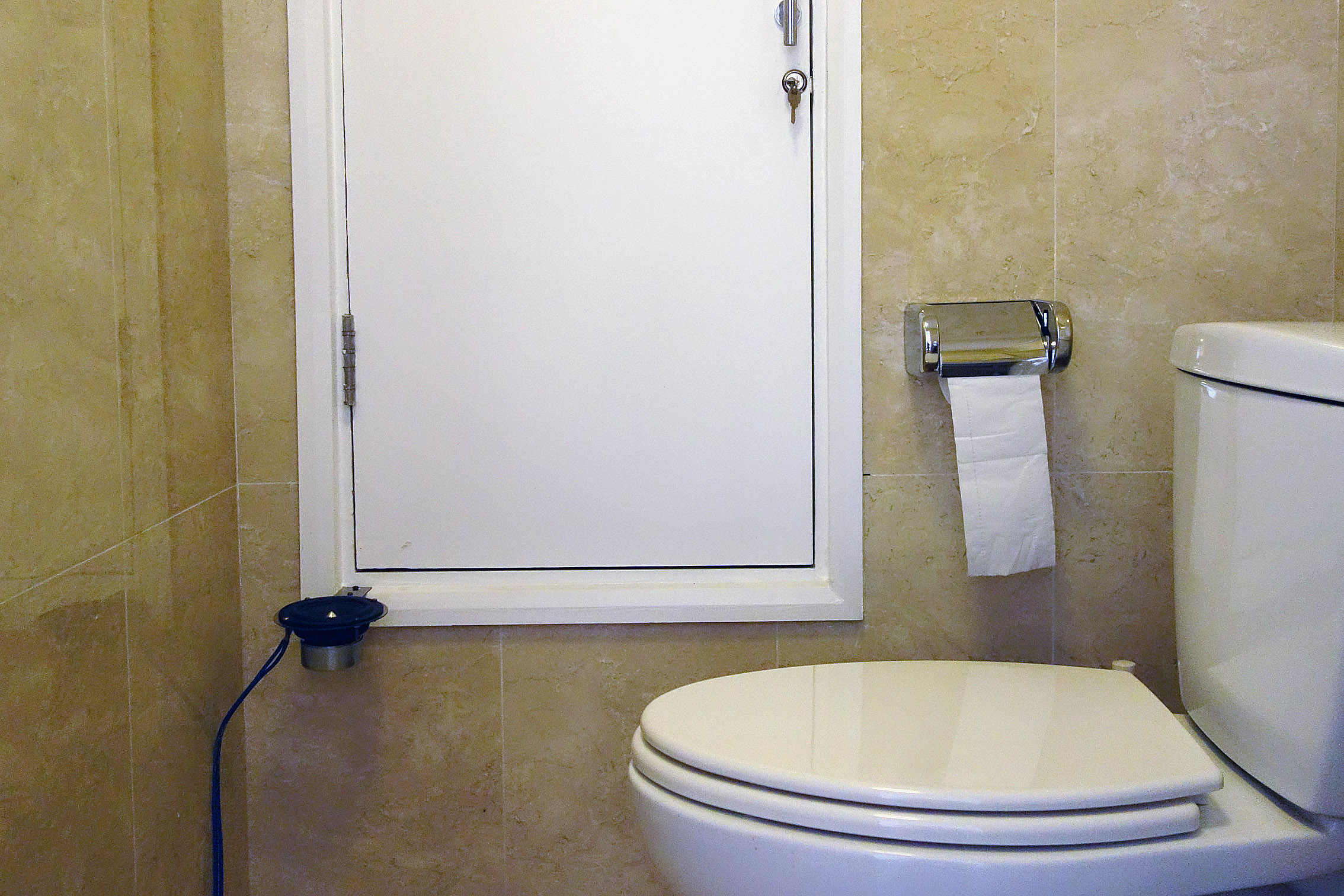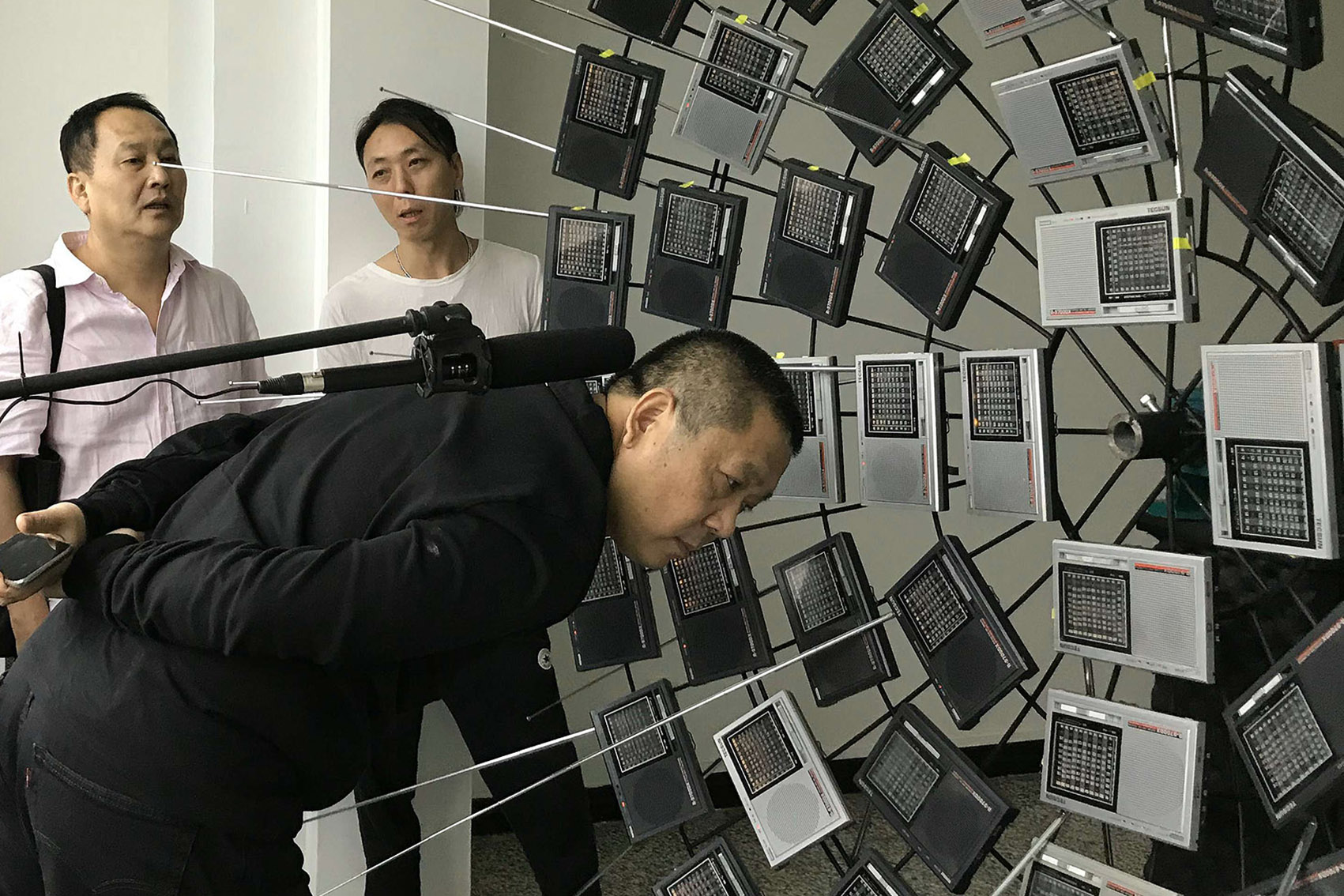Before the era of the Internet, for many Chinese, shortwave radios were the main channel of accessing international information. Shortwave, also known as skywave, is transmitted by reflecting radio signals off the ionosphere located at the upper edge of earth’s atmosphere. Shortwave transmission is thus unhindered by obstacles on the ground, and as its reach easily exceeds ten thousand kilometers, metaphorically speaking, it obliterates national boundaries. In theory, with proper methods, we can receive radio broadcasts from every country in the world. The well-known radio stations such as Voice of America and BBC have been using shortwave technology for their international radio broadcasts. But skywave is inherently unstable, the ionosphere and receiving condition on the ground can easily weaken and distort the signal. Furthermore, because of the political and ideological differences, the authorities jammed the frequencies of most overseas radio broadcasts to China, resulting in their poor reception. The advancement of satellite technology and the universalization of the internet brought about the decline in the shortwave radio broadcast, which once widely used as reliable means of propaganda and communication during the World War II and the subsequent Cold War. As a result, broadcasters such as Voice of America and Deutsche Welle, which once regarded by the authority as enemy radios, ceased their Chinese language broadcasts successively. Some overseas radio stations, however, have remained active on shortwave frequencies until today.
Before the 1980s in China, ‘enemy radio’ was an extremely sensitive term and listening to overseas broadcasts was a taboo. Furthermore, it was deemed a serious criminal offense during the cultural revolution. Guizhou citizen Li Zhimei was sentenced to death for listening to ‘enemy radio’ broadcast. Notwithstanding the risk of being incriminated, driven by the thirst for knowledge and curiosity many people still tuned to overseas broadcasts for news and information.
As the extension of embassies, Diplomatic Residence Compound is different from normal residential areas. Here, it is separated from the rest of the city and the foreign residents here enjoy ‘Diplomatic Privileges and Immunities’ codified in the international law. Even in the years of the total blockade to the outside information, the authority had no jurisdiction to interfere with the residents’ communication with the outside world. The ban on access to ‘enemy radio broadcasting’ was thus futile in Diplomatic Residence Compound. In those days, on top of the administrative decree banning access to ‘enemy radio stations’, the authority established many jamming stations to interfere with the shortwave signals. Ironically, as the heart of Beijing, the inner Second Ring Road area, where Diplomatic Residence Compound is located, was the most severely affected. From the perspective of shortwave reception, the ‘diplomatic privilege’ did not materialize. Administrative order plus physical interference caused the overseas broadcast stations to implement countermeasures - a given radio station would appear on several different frequencies and switch frequencies after a certain period of time - which rendered the operations of radio jamming more difficult. Alone with the ending of the Cold War, shortwave radio broadcast slowly declined. The taboo also became less strict and after the 1980s, the phenomenon of ‘listening to enemy radio broadcasts’ gradually disappeared in the everyday life of China.
Today people can freely search the sky for shortwave signals on their own balcony without the fear of being prosecuted, but because of various historical reasons, the current shortwave broadcasters have kept the tradition of shifting on different frequencies. The sound carried by today’s shortwave signal is still fragile and coarse as in those old days; the sound uniquely produced by the combination of the instability of ionosphere and artificial interference, imprinted with history, has become part of the collective memory of that age.
The project Balcony transforms the technical characteristics and historical property of shortwave into a series of constantly altering and hardly decipherable sounds which are then impregnated into the site-specific space of DRC 12. As a connecting ‘open space' from the private and the public, a balcony can effectively circumvent the insulation effects of the building itself and is, therefore the ideal location for the shortwave radio reception. That is why there has always been a hidden connection between the ‘balcony’ and the ‘enemy radio station’. A bizarre, dish like installation composed of 60 Tecsun R9700 DX transistor radio sets, stands on the balcony of DRC 12 and is continuously rotating. Every radio is tuned to a certain frequency to receive one overseas radio station. As the installation rotates, the fuzzy voices of different languages combined with harsh noises from the radios become even more perplexing. Bring into this specific apartment the puzzling sound, is to transport the audience back to the historical circumstances of the last century and enable them to contemplate various paradoxes and absurdities.
Liu Zhan, 23 March 2018
在互联网时代开启之前,短波电台是上世纪民间获取国际资讯的重 要通道。短波的特点是通过天波传递信号,而天波是没有国界的,它的 传播距离能达到上万公里,并且不受地面障碍物的阻挡。所以理论上只 要方法得当,我们在世界任何地方都可以收听到来自不同国家的短波电 台。我们所熟知的《美国之音》和英国 BBC 等国际电台就是通过短波向 世界各地进行广播的。但是天波很不稳定,自然和环境因素都会造成信 号的弱化和畸变。除此之外,由于政治立场和意识形态的不同,中国对 多数境外电台进行信号干扰和覆盖,导致境内无法顺畅的收听到境外广 播。随着卫星技术的发展和互联网的普及,短波电台这一广泛应用于二 战和冷战时期的宣传手段逐渐走向衰落,《美国之音》、《德国之声》 等那些曾一度被我们视为“敌台”的主流国际电台都相继停止了对华的 普通话广播。即便如此,目前仍有许多境外电台活跃在短波频率上。
“敌台”一词在上世纪八十年代之前是个高度敏感的词,在那个特 殊的历史环境下收听境外短波广播是个禁忌,在“文革”期间更是被视 同犯罪。贵州人李志美因偷听“敌台”被判处死刑。尽管如此,在求知 欲和好奇心的驱使下,民间仍有许多人冒着被检举的风险通过短波收听 境外广播。
外交公寓作为使馆区的延伸有别于普通社区。这里实行封闭式管理, 居住在此的外籍人员大多享有国际法赋予的“外交特权”,即使是在那 个特殊的年代,当局也无权干涉这里的外籍人员与境外实现信息同步, 因此“严禁收听敌台“这一政令在这个社区里是失效的。在那个时期, 政府在政策上限制民间收听“敌台”的同时还设立了很多干扰塔来覆盖 境外的短波信号。有讽刺意义的是,北京的二环内,作为首都最核心的地带是干扰塔重点“关照”的区域,从短波的角度看,外交公寓的豁免 权也没能幸免。政令加上物理手段的双重干涉也迫使境外电台不得不采 取措施来应对——电台的信号会在不同的时段出现在多个频率上,而且 每隔一段时间便会更新频率以加大干扰源捕捉的难度。随着冷战的结束 , 短波电台也走向了衰落,这块“禁地”已不复存在,“偷听敌台”这一 现象到了八十年代就逐渐从人们的日常生活中消失了。
如今人们大可以有恃无恐地站在自家阳台上抽出天线搜寻天空中的 短波信号,但由于种种历史原因,现存的短波电台依然保持着在不同频 率上流动的传统,今天短波信号输出的声音质感仍旧是脆弱且粗糙的, 这种伴随着天波以及干扰源所制造出的特有杂音早已被打上了历史的烙 印,成为那个年代集体记忆中的一部分。
《阳台》这个项目将短波无线电的技术特点和它的历史属性转化为 一组持续变化且识别度极低的声音并注入到“外交公寓 12 号”这个特殊 场域当中。阳台作为连接公寓内外的“开阔地带”能有效的避免建筑物 本身对短波信号的屏蔽作用,自然就成为公寓中收听短波广播的最佳位 置,这也使“阳台”和“敌台”一直存在着某种内在的呼应。由 60 部半 导体收音机构成的怪诞装置矗立在“外交公寓 12 号”开放式阳台上,并 不停地转动。每部收音机锁定一个短波频率接收着境外电台的信号。伴 随着装置的缓动,收音机发出的不甚清晰的各国语言与混杂刺耳的噪音 变得更加浑浊。将这些不可琢磨的声音导入这间特殊场域的寓所中,意 在将观众瞬间拉回到上世纪那个历史情景当中,感受那个时代的种种冲 突、悖论与荒诞。
刘展 ,2018 年 3 月 26 日












































































